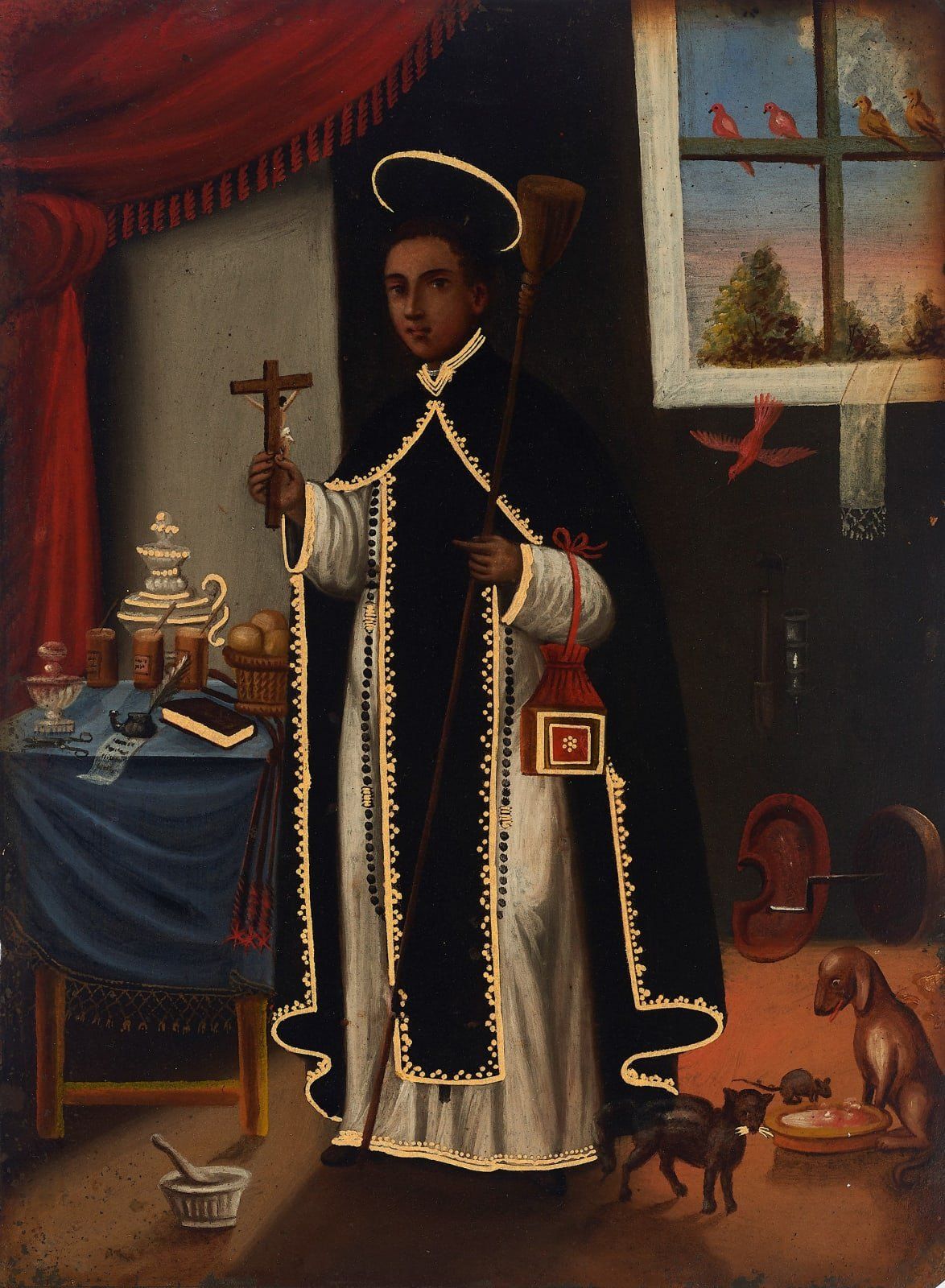Message of Abbot Paul - Thursday 3rd November 2022
Abbot Paul • November 2, 2022

One of the most popular saints the world over is St Martin de Porres, the first saint of colour to be canonised in modern times, by Pope St John XXIII in 1962. Martin died in Lima, Peru, on this day in the year 1639 in his sixty first year. Devout and kind from his earliest years, he became a Dominican brother and served, throughout his life, at the lowliest tasks in the convent. Because of his racial mix, he wasn’t actually allowed to become a friar or a lay brother, so in truth was really a kind of religious servant who was allowed to wear a habit. However, because of his charity and humility, his prayerfulness and sense of humour, his ability to bilocate and levitate, he became famous throughout Lima and was greatly loved by everyone, especially the poor he fed at the convent gate. He is always depicted with a sweeping brush in his hand and, at his feet, a dog, a cat and a mouse eating together from the same dish, a prophetic miracle of social justice, which we still pray will be brought about in our day, where there is so much inequality and injustice in our world.
Our Gospel passage from Luke, (Lk 15: 1-10), presents us with the first two of three parables, the third of which is that of the Prodigal Son. These are the Parable of the Lost Sheep and that of the Lost Drachma, the first involving a shepherd and the second a housewife. Jesus preaches all three parables to explain why it is that he mixes and eats with tax collectors and sinners.
“The tax collectors and the sinners were all seeking the company of Jesus to hear what he had to say, and the Pharisees and the scribes complained. ‘This man’ they said ‘welcomes sinners and eats with them.’ So he spoke this parable to them:
‘What man among you with a hundred sheep, losing one, would not leave the ninety-nine in the wilderness and go after the missing one till he found it? And when he found it, would he not joyfully take it on his shoulders and then, when he got home, call together his friends and neighbours? “Rejoice with me,” he would say “I have found my sheep that was lost.” In the same way, I tell you, there will be more rejoicing in heaven over one repentant sinner than over ninety-nine virtuous men who have no need of repentance.
‘Or again, what woman with ten drachmas would not, if she lost one, light a lamp and sweep out the house and search thoroughly till she found it? And then, when she had found it, call together her friends and neighbours? “Rejoice with me,” she would say “I have found the drachma I lost.” In the same way, I tell you, there is rejoicing among the angels of God over one repentant sinner.’”
The scribes and the Pharisees complain constantly about Jesus, while he patiently teaches them the reason for his behaviour, which is none other than the loving mercy of God himself. In doing so, Jesus is showing us how we should behave, the lengths to which we should go to save sinners and bring people to know the love, the forgiveness and the justice of God. This is what St Martin de Porres did throughout his life. Today, we must follow his example and do the same.









